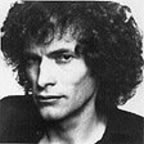
 |
Back to the main performer's List | |
200 State Street Binghamton, NY (607) 217-7334 |
Tony Bird Tony's music fuses African styles with Western traditions of folk, blues, and rock, creating a unique sound that is at once polyrhythmic, percussive and melodic. His lyrics spring from particular experiences, colored by intimate observation and a poet's gift for image. His subjects are wide-ranging: mangoes and bicycles, the African bush and New York City bars, homelands and the homeless, and people's relationships with the earth and with each other. Growing up at the foot of Malawi's Zomba Mountain in southeastern Africa, Tony was inspired by the wild beauty of the bush land near his family home and by the vibrant multicultural music and stories he heard around him. He began playing guitar in boarding school in Rhodesia (now Zimbabwe) and joined a school rock and roll band. But it wasn't till he traveled to Britain in the early '60s to study forestry that he discovered his true calling. Tony studied and worked for a time in Scotland, but the ferment of the folk-rock revival drew him to London. He recalls, "I wasn't sure what I wanted to do. It was a big change from Africa, and I felt a bit rootless. But then I started to hear what was going on, and I spent all my spare time with music." Still restless, Tony found a berth on a geographical survey ship. During the next five years he worked and traveled through the Persian Gulf, the Mediterranean, the North Sea, the Indian Ocean and down the east and west coasts of Africa, all the while writing songs and watching his distinct musical style evolve. In 1970 he found himself in Madagascar, a relatively short hop from Malawi. He came home claiming his identity as a full-fledged artist. For two years, Tony toured the clubs of southeastern Africa, expressing eloquently both the beauty and the suffering of the continent--an act of great courage in that time and place. The candor of his songs against injustice and apartheid soon put him in danger. He left Africa a second time, returning to England where he signed a record deal with CBS, and eventually to the United States. Carol Forsberg writes for Sweet Potato Magazine in Boston, "It is possible to see Bird as a bridge between black and white cultures, for he expresses his music from the perspective of one who has experienced the splendors and terrors of Africa and remains committed to exposing all that he's seen. Tony Bird's vivid brand of storytelling makes it easy for the audience to visualize the grandeur of an African plain, the beauty of a woman he's loved, or the harsh scene of a people oppressed. Whenever he performs, Bird takes his audience through a whole range of human emotions." Columbia Records issued two critically acclaimed albums, "Tony Bird," and "Tony Bird of Paradise," which was named by the Chicago Tribune in a People Magazine critics' poll as one of the 10 best pop albums of all time. The long-awaited "Sorry Africa", recorded with saxophonist Morris Goldberg and other internationally known musicians, is a spirited affirmation of his homeland. Tony is finishing up his new album with Rounder Records, which features guest performances with Ladysmith Black Mambazo and members of Paul Simon's band. |